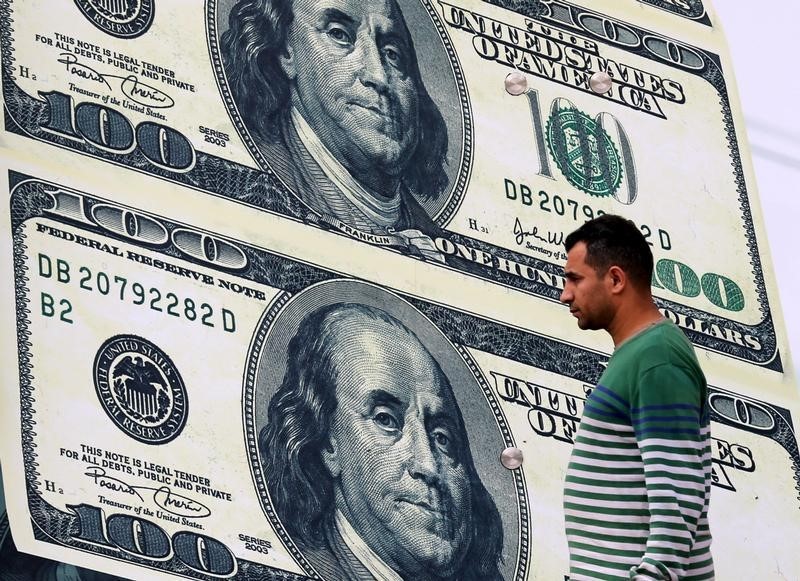By Peter Nurse
Investing.com - The U.S. dollar traded in a tight range Tuesday, while the euro edged lower on talk of additional sanctions on Russia and the Australian dollar received a boost from a hawkish central bank.
At 3:00 AM ET (0700 GMT), the Dollar Index, which tracks the greenback against a basket of six other currencies, traded marginally lower at 98.955, just below the one-week high of 99.083 reached overnight.
The dollar has been drifting this week so far as investors await the arrival of the minutes from last month’s Federal Reserve policy meeting, due on Wednesday.
Expectations are building that the central bank will move more aggressively at its meeting in May, especially after a jobs report that showed nonfarm payrolls increasing by 431,000 jobs last month while the unemployment rate fell to a new two-year low of 3.6%.
Ahead of the Fed minutes, Tuesday sees the release of ISM’s non-manufacturing PMI data for March, at 10:00 AM EST (1400 GMT), which is expected to show increased momentum in March, while speeches from Fed policymakers Neel Kashkari, Lael Brainard and John Williams will also be closely studied.
Elsewhere, AUD/USD rose 0.9% to 0.7607, jumping to a nine-month high, after the Reserve Bank of Australia left its benchmark interest rate unchanged at 0.1% at its latest policy setting meeting, but indicated that rate hikes were coming.
Australia’s central bank dropped its pledge to be "patient" on tightening policy in its statement following the decision, a phrase that has featured in every post-meeting release since November 2021, suggesting that it is going to hike sometime soon.
EUR/USD was largely unchanged at 1.0972, hovering above a one-week low, on talk of fresh sanctions on Moscow following alleged atrocities on civilians by Russian forces in the Ukrainian town of Bucha.
German Chancellor Olaf Scholz said that Putin and his supporters would "feel the consequences" of events in Bucha, while Biden's national security advisor, Jake Sullivan, stated that new U.S. sanctions against Moscow would be announced this week.
“It still seems that the EU is some way from weaning itself off Russian oil,” said analysts at ING, in a note. “Presumably, any moves from the EU toward a Russian oil embargo would see crude prices spike higher again and the euro come under pressure.”
USD/JPY fell 0.2% to 122.58, dropping back further from the multi-year high of 125.10 reached in late March after Bank of Japan Governor Haruhiko Kuroda stated that the recent pace of appreciation was "somewhat rapid," and policymakers are watching moves "carefully."
GBP/USD rose 0.1% to 1.3133, USD/CNY was flat at 6.3638, while USD/TRY rose 0.1% to 14.7092 the day after Turkey’s inflation jumped to a fresh 20-year high in March, with consumer prices rising an annual 61.1% through last month.
